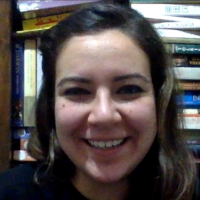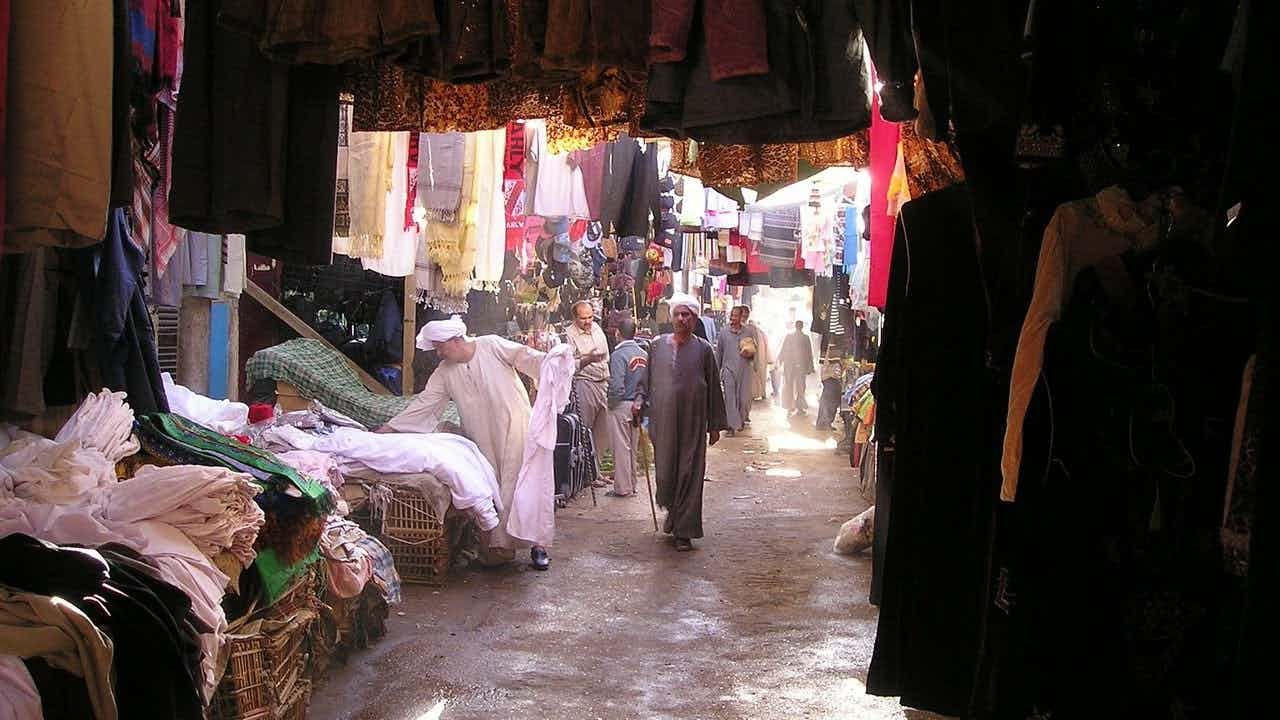How To Say Thanks In Egyptian Arabic

Author

Learning how to be polite in Arabic is crucial.
With Egyptians in particular, learning how to be friendly and polite with your words is an essential skill because we tend to be verbal about liking or disliking things and people, and our cues from other people tend to be verbal as well.
If you are not careful, you might hear the words قليل الذوق or قليلة الذوق (Aleel Elzou'/Alelit Elzou') then you might have done something wrong, opps!
Aleel Elzou' or Alelilt Elzou' is what Egyptians say when someone is not being tactful. It is an adjective to describe a person who “Lacks decorum or is tactless.”
Basically, it is used when someone is rude; asks for a favor and does not say thank you, orders at a restaurant and does not say please, or is invited to a party and doesn't say goodbye when they leave, etc. You get the gist.
What we'll try to do today is help you not be called Aleel Elzou' or Alelilt Elzou' when you're conversing with your new language partners.
This guide follows on from how to say your please in Egyptian Arabic. In this guide, I'll help you learn the different ways to say thank you.
Also be sure to check out our other guide on how to thank people in MSA and other dialects.
How to say thanks in Egyptian Arabic
1. Shukran
| English | Transliteration | Arabic |
|---|---|---|
| Thanks | Shukran | شكراً |
This is the most common and basic way to say thanks. If you want to go with plain and simple, go with shukran.
Shukran could be used in all occasions, formal and otherwise.
Shukr is the noun for giving thanks. Knowing this will help you remember the next more complicated ones that are more or less a variation of Shukran.
For emphasis, you can always add: Awi (a lot), Gedan (very) or Begad (really/Seriously)
2. Alf Shukr
| English | Transliteration | Arabic |
|---|---|---|
| A Thousand Thanks | Alf Shukr | ألف شكر |
Did someone go the extra mile to do you a kind favor? Do you feel the love tonight and want to express it out loud but you don't really know the person you're thanking?
Go with a 1000 thank yous.
It's your best bet to extend your thanks to people you don't really know and still maintain formality. Did the man at the grocery store cut you an extra piece of turkey while he was weighing your share?
He gets a thousand thank yous!
3. Ashkurak
| English | Transliteration | Arabic |
|---|---|---|
| I thank you (directed to second person masculine) | Ashkurak | أشكرَك |
| I thank you (directed to second person feminine) | Ashkurik | أشكرِك |
This is not widely used except in very formal settings. You can say it with your imaginary top hat on.
4. Motshakkir / Motshakkira
| English | Transliteration | Arabic |
|---|---|---|
| I am thankful (masculine) | Motshakkir | متشكر |
| I am thankful (feminine) | Motshakkira | متشكرة |
| Literally: We're thankful (plural) | Motshakkreen | متشكرين |
This one is interesting. In the Egyptian cultural context, Motshakkir / Motshakkira are used ironically. You'll even hear Motshakkreen for the plural much more than the first two.
Here is where it gets grammatically interesting. It does not really imply first person plural. It is definitely not a “we are thankful” even though it literally means so. It may be conjugated for the plural but it indicates that the speaker is one individual. It is what we call in Arabic "The respectful I". It is when the speaker in question knows that they are hierarchically more important or more powerful than their audience.
"The respectful I" is usually used by God in the Quran, the Sultans in their faramans, the government, etc.
While I was writing this article, I was wondering why do we use Motshakkreen ironically and why whenever we hear it, we always assume that the person saying it is being ironic, and I think it's because of what instantly comes to my mind after Motshakkreen.
It's a song by Hassan El Asmar called “Motshakkreen”. It's a sassy classic song that you will enjoy.
I am thankful for the pains and the wounds (you caused)
I am thankful for what has passed and what has gone.
While you dance to this early 2000s music, I salute you for also becoming now fluent in Egyptian culture and officially part of a cultural collective consciousness. If someone told you motshakkreen one day and you break into song, they might give you the honorary citizenship on the spot. Trust me!
5. Teslam / Teslami
| English | Transliteration | Arabic |
|---|---|---|
| Literally: May you be safe, May you be well. (directed to second person masculine) May you be blessed | Teslam | تسلم |
| Literally: May you be safe, May you be well. (directed to second person feminine) May you be blessed | Teslami | تسلمى |
This is a favorite of mine to use, and I honestly do use it all the time.
Teslam / Teslami basically means “May you be well” or “May you be healthy”. It is informal and people are usually initially surprised when they hear it because it implies intimacy and closeness.
But guess what, Egyptians are starting to use it more in an attempt to be kind to one another. Try it out some time, and it will get someone to smile.
6. Mamnoun Leek / Mamnoun Leeki
| English | Transliteration | Arabic |
|---|---|---|
| Grateful for you (first person masculine directed to second person masculine) Grateful for you (first person feminine directed to second person masculine) | Mamnoun Leek Mamnouna Leek | ممنون ليك ممنونة ليك |
| Grateful for you (first person masculine directed to second person feminine) Grateful for you (first person feminine directed to second person feminine) | Mamnoun Leeki Mamnouna Leeki | ممنون ليكى \ ممنونة ليكى |
This one is formal but still very heart-warming. When someone does you a kind favor and you're genuinely grateful for their kindness, Mamnoun(a) Leek or Mamnoun(a) Leeki is the way to go.
What I want to share for this phrase is a bit far-fetched but I would like to share it with the readers nevertheless. It is a non-Egyptian song but very popular in Egypt as part of the new rap and Trap music wave. It's a song called Mamnoun (Grateful) by the Syrian Rapper Bu Kulthum who named himself after Umm Kulthum, an icon of Egyptian music.
This beautiful song is about the loss of his mother and how grateful he feels to have her in his life for a while.
7. Kattar Kheirak / Kattar Kheirik
| English | Transliteration | Arabic |
|---|---|---|
| May God increase your welfare/ benevolent acts (directed to second person masculine) | Kattar Kheirak | كتر خيرَك |
| May God increase your welfare/ benevolent acts (directed to second person feminine) | Kattar Kheirik | كتر خيرِك |
I like this one a lot because culturally, it has a completely different use than its actual meaning. Kattar Kheirak/Kheirik literally is a prayer for someone to have the ability to do more good deeds and to have a general better welfare.
Culturally however is a different story! When someone refuses to do you a favor or just refuses to do something for you, Kattar Kheirak/Kheirk is your go-to expression, and used ironically to shame the other person for being unkind.
A running joke among Egyptians is that Kattar Kheirak/Kheirik is mostly used by mothers and grandmothers to shame their kids into doing things they want them to do.
| English | Transliteration | Arabic |
|---|---|---|
| Hager, Get up and make the rice. | Ya Hager, oumy e‘mily el roz | يا هاجر قومى اعملى الرز |
| Mum, I am not available. I am working. | Mesh fadya ya mama. Ba‘mil shoghl. | مش فاضية يا ماما. بعمل شغل. |
| Okay, may God increase your benevolent acts | Tamam! Katar kheirik | تمام! كتر خيرك! |
This is a classic at every house. Obviously, Hager's mother here is using sarcasm to shame her daughter into getting up and making the rice.
8. Merci
All you French speakers out there, you'll love this. Yes, we do use the French word for thank you but we pronounce the r in the middle.
Saying Merci in Egypt usually implies that the speaker is from a particular social class, well-educated, and polite. It's bourgeois and neocolonial, of course, but who's counting?
Want to go the extra step, say Merci Awi!
9. Teslam Eidak / Teslam Eidik
| English | Transliteration | Arabic |
|---|---|---|
| May your hands be blessed (to second person masculine) | Teslam Eidak | تسلم ايدَك |
| May your hands be blessed (to second person feminine) | Teslam Eidik | تسلم ايدِك |
Ah! Another favorite of mine!
Have you had such a delicious meal you had to compliment the chef after? This is it! Teslam Eidak / Eidik!
This is a perfect saying “bless your hands” or “may God safeguard your hands” and is used to compliment anything done by someone's hands. You can say it to someone who just cooked for you, or to a handyman or a mechanic who fixed something for you.
How cool is it to know an expression you can simultaneously use for after eating a delicious hot baked pie that your friend just made, or/and when you walk into your new apartment and you love that fresh coat of paint that the Usta (craftsman) has just finished.
For our multiple language learners: If you are a Turkish speaker or learning both Arabic and Turkish, Teslam Eidak / Eidik is the Arabic equivalent of “Ellerine sağlık”.
10. Jazzak(i) Allahu Khairan
| English | Transliteration | Arabic |
|---|---|---|
| May God reward you with goodness (to second person masculine) | Jazzak Allahu Khairan | جزاك الله خيرا |
| May God reward you with goodness (to second person feminine) | Jazzaki Allahu Khairan | جزاكى الله خيرا |
Jazzak / Jazzaki Allahu Khairan is a formal and Islamic phrase used in religious contexts.
You will most likely hear it if you are dealing with a sheikh or a religious person.
In order to give you a better image for the expression to stick, my grandfather was a strict Arabic teacher who once graduated from Al-Azhar (the most prestigious university for Islamic learnings in Egypt). My grandfather was a serious man.
When I used to make him tea in the afternoon, he would smile to me and say “Jazakki Allahu Khairan”.
In this case, my grandfather is considered a Sheikh among people and his education has been strictly Arabic and Islamic. He would always choose the formal Arabic expression to express himself.
It's also worth mentioning that in Egyptian culture, some religiously conservative people would use “Jazzak(i) Allahu Khairan” as an alternative to “Shukran” to publically imply that they are Muslims or that they abide by Islamic teachings.
In doing so, their preference to use a clearly Islamic expression rather than an ambiguous or neutral phrase such as “Shukran” would be observed.
Not to mention, that it would be a great way to be thankful but extremely formal with the person they are speaking to.
This is it for today!
I hope this guide was useful to you and that you have learned something new to use in this exciting journey of Arabic learning. You know you can now thank me for it! :)